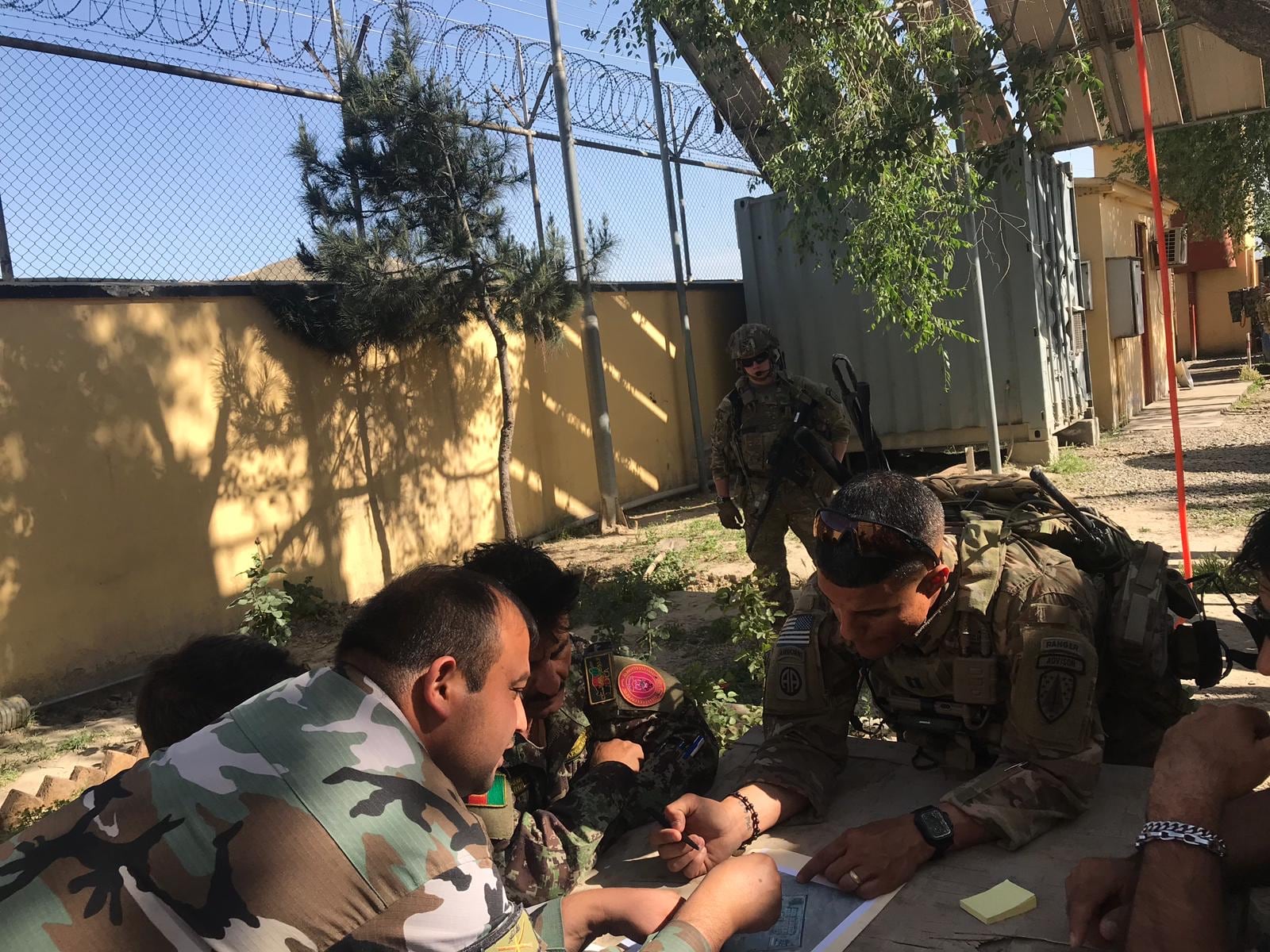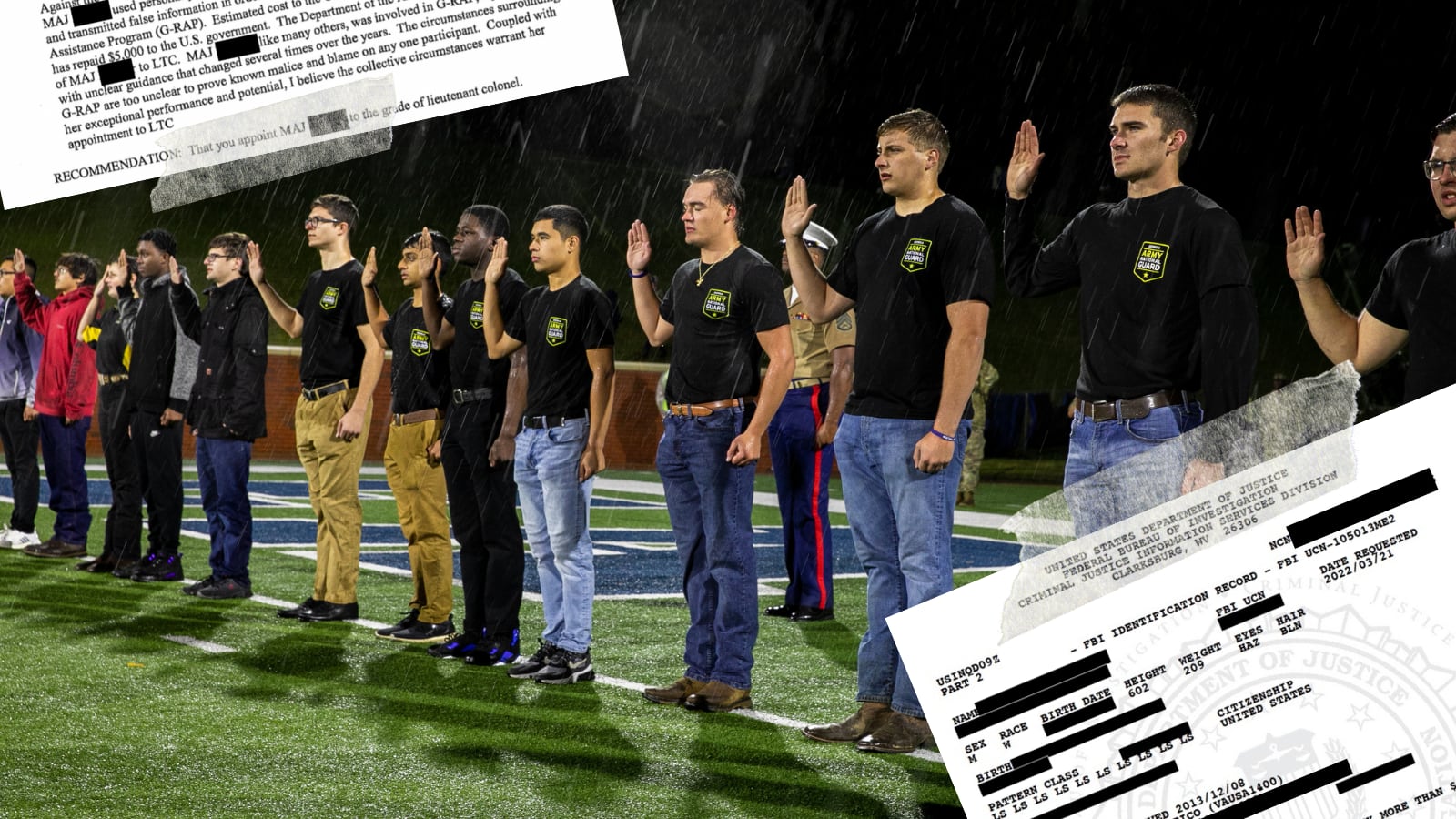The Army’s Criminal Investigation Division is taking a second look at nearly 900 investigations it previously conducted into personnel accused of fraud or other crimes while participating in the Guard Recruiting Assistance Program between 2005 and 2012, according to an email obtained by Army Times.
Tens of thousands of part-time troops, primarily members of the National Guard, faced investigation for their participation in G-RAP (or its smaller Army Reserve counterpart, AR-RAP). Under the program, off-duty members working for office supply company Docupak as independent contractors could receive up to $2,000 for each enlisted soldier they referred — and it worked, sparking around 130,000 enlistments in seven years.
But allegations of rampant fraud led to a massive CID investigation, known as Task Force Raptor, that reviewed virtually every G-RAP payment as a potential crime. Despite investigators’ efforts, only around 150 people were ever charged, and even fewer were convicted.
RELATED

An Army Times investigation published in April revealed how an unknown number of troops and veterans who were never charged have suffered the administrative consequences of CID’s broadest-ever investigation — incorrect background records for people never arrested, delayed promotions, issues with state and local government applications and more.
Some investigative subjects were “titled,” an administrative process creating a permanent CID record that there had been a criminal investigation — regardless of its result. Some have found that the titling process saw them entered into an FBI criminal database used for background checks.
Now, according to an email sent by the agency’s assistant director Guy Surian, CID is examining “more than 880...Recruiting Assistance Program (RAP) cases.”
Surian said that CID director Gregory Ford directed the move, building a team that will review “investigative records on RAP subjects to ensure each was titled and/or indexed appropriately and begin any corrective actions deemed necessary.”
CID’s top spokesperson, Patrick Barnes, confirmed the review in a statement emailed to Army Times. He did not specify its scope, though.
“At the direction of CID Director Gregory D. Ford, a team of Special Agents is reviewing records from RAP investigations to determine whether individuals were titled and indexed appropriately and will initiate any corrective actions deemed necessary,” said Barnes.
RELATED

It’s not clear how long the process will take, but an attorney who has represented dozens of G-RAP cases is skeptical that CID can conduct a fair internal review.
“I’m worried that they’re just going to whitewash this and nothing is going to come of it,” said Doug O’Connell, a Texas lawyer and retired Special Forces colonel.
O’Connell thinks the investigations were ill-founded, too — he argued that federal prosecutors shouldn’t have been able to charge people with stealing public funds, since the money was paid from Docupak to its own subcontractors.
Army officials told Congress in 2014 that the program may have violated federal contracting laws.
One titled officer also expressed his doubt that CID can fairly reconsider the cases, given the resources devoted to the nearly $28 million investigative task force.
Capt. Justin Tahilramani, whose case Army Times highlighted in April, recently had his application for a Florida real estate license halted by a false positive in the FBI background check database. In hopes of helping his application, he inquired with the federal prosecution office that had considered his case.
When he received a letter back on July 9, Tahilramani was surprised to learn that the U.S. Attorney’s Office in Lubbock, Texas, “never even opened an investigation into you or your alleged involvement with [G-RAP].”
“There was only one person who was the subject of the [Texas Tech] G-RAP investigation (not you),” the letter, which Army Times reviewed, stated.
Tahilramani doubts CID, who titled him based off a purported probable cause determination from the Lubbock-based prosecutors, can approach the internal review with “fresh eyes and no agenda.”
“The information in the cases is flawed and inaccurate,” he argued. “How can they possibly accomplish that with only the information already in the case files?”
Davis Winkie covers the Army for Military Times. He studied history at Vanderbilt and UNC-Chapel Hill, and served five years in the Army Guard. His investigations earned the Society of Professional Journalists' 2023 Sunshine Award and consecutive Military Reporters and Editors honors, among others. Davis was also a 2022 Livingston Awards finalist.





